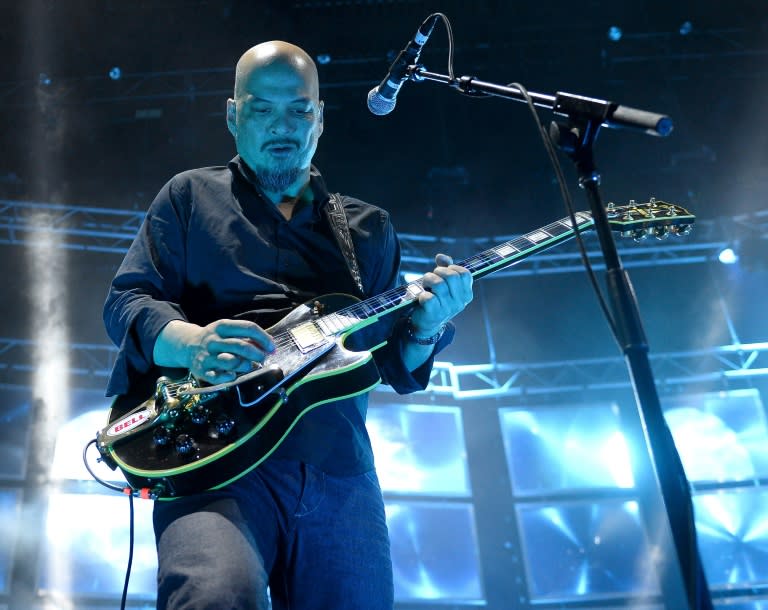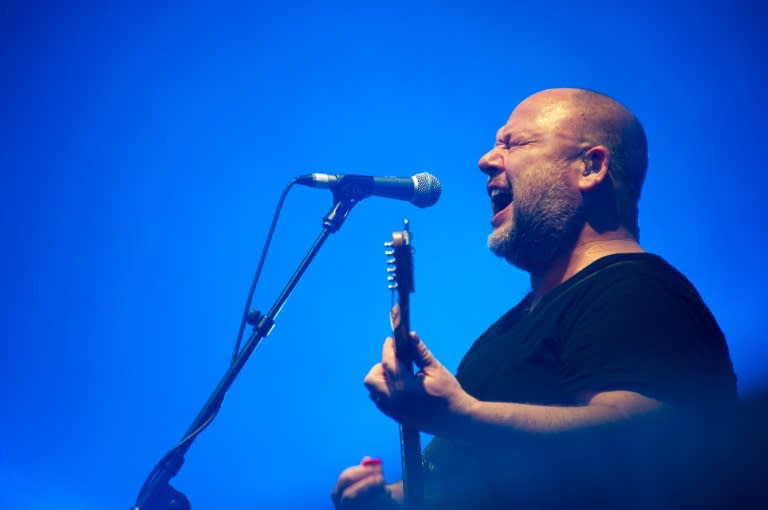Pixies return as full band with heads in absurd
They used to sing about slicing up eyeballs; now they're carrying severed heads. The Pixies, pioneers of alternative rock, have returned as a full band and with a renewed surrealism. "Head Carrier," which comes out on Friday, is only the sixth studio album by the underground icons who went on hiatus at their height in the early 1990s. Yet the Pixies' reunion was marred by the departure in 2013 of bassist Kim Deal who had long had a tense relationship with frontman Black Francis. On "Head Carrier," the Pixies bring back their earlier energy levels -- and also find a missing element, a female voice, in the form of Argentine-born bassist Paz Lenchantin who has formally joined the band after temporarily replacing Deal on tour. Lenchantin interjects the occasional dulcet vocal line on "Head Carrier," balancing the harder-edged Black Francis as the Pixies unleash their signature rapid-fire bursts of surfer rock. "Three dudes and a girl -- that has always been our presentation emotionally and we've got back to that now," Black Francis told AFP. He indirectly acknowledged criticism of the band's last album, 2014's "Indie Cindy," which came after Deal's departure and a full decade after the Pixies reunited to tour, raising massive expectations over whether the band still had the same creative spark. "I stand by it. I think 'Indie Cindy' is a good record. It represents what was happening to the band at the time," said Francis, who performed as Frank Black during the Pixies' downtime. "We could have tried to stuff some woman in there and said, 'Okay, we have a new Kim Deal,' but that would have been so artificial because we didn't have our Kim Deal at the time," he said. - Rocking about decapitated saint - Originally from Boston, the Pixies initially found their strongest following in Britain and continental Europe -- where they will start their tour for "Head Carrier." But the band also laid the groundwork for the US alternative music boom in the early 1990s as Nirvana in particular took inspiration in the Pixies' rough-around-the-edges guitar and lyrical abstraction. "Debaser," one of the band's most famous songs, drew from Salvador Dali's surrealist film "Un Chien Andalou" with its imagery of slicing an eyeball with a razor. On the title track of "Head Carrier," Francis references Saint Denis, the patron saint of Paris, a Christian martyr who according to legend would still preach after execution by carrying his severed head. "A three-headed monster cut Denny's head right off / You can't be too chill, you can't be too zen / I'm going down the drain again," Francis sings. Saint Denis tangentially ties the album together with the later track "Plaster of Paris," with Francis drawn by how plaster was first manufactured in the neighborhood of Montmartre -- where Denis met his death. - Let the surrealism flow - Letting the music drive the songs, Francis turns to an onomatopoeia-driven neologism on the album's first single "Um Chagga Lagga." "Um chagga lagga on the side of the road / Um chagga lagga in the Languedoc," he sings, referring the wine-growing region of southern France. Francis steps back from the surrealism at times on "Head Carrier" as on "All I Think About Now." With a guitar calling to mind the Pixies' classic ""Where Is My Mind?", the song is a lyrical thank-you to Deal, also known for her band The Breeders. Francis said he found the lyricism most "magical" when the imagery flowed freely. "Sometimes when I'm writing a song I really feel so strongly about the poetry, in the sense that it is supposed to follow a surrealist, subconscious kind of thread, that I'm not fighting it, I'm going along with it," Francis said. He said the key was to keep the subject in focus -- but only just. "You have to say the song that you're dealing with here deals with Saint Denis of Paris," he gave as an example. "And even though we may not understand the song instantly when it goes by, empirically anyway, there has to be an attempt to kind of go -- See, one plus one plus one plus one sort of equals four. "Maybe it only adds up to three because it's too damn cryptic. But there's an attempt there."





